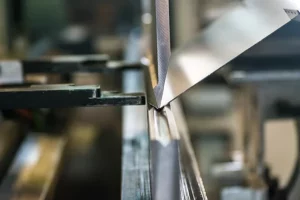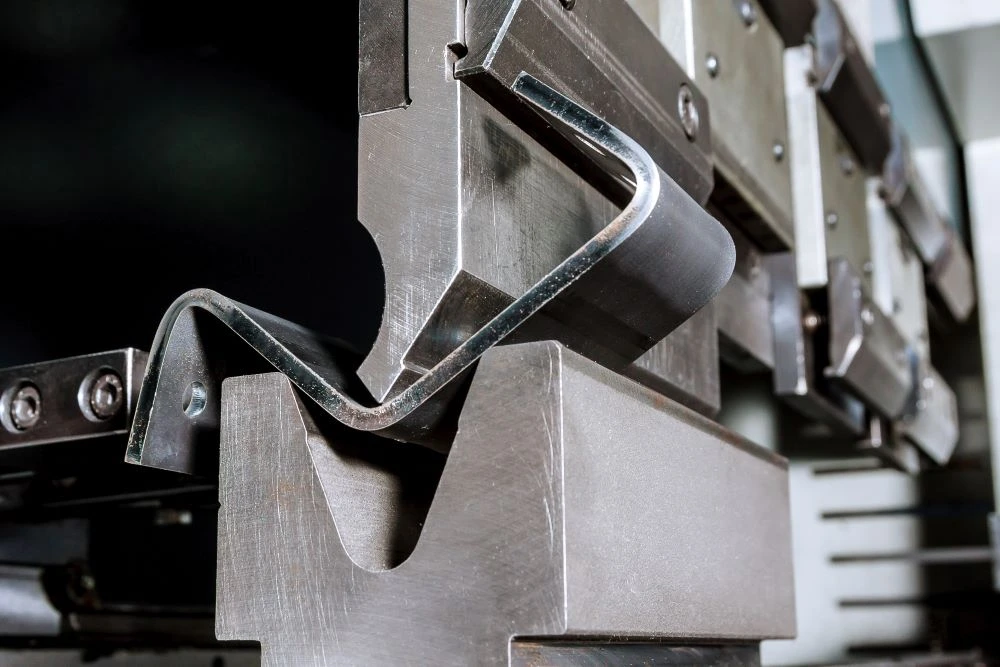Cutting-edge metal bending processes are reshaping fabrication. Precision, automation, and material advancements boost efficiency. Computer Numerical Control machines enable intricate designs with pinpoint accuracy. Automation ensures consistent outcomes and accommodates intricate shapes. Enhanced materials result in lighter, yet durable components. Streamlined production through automation reduces errors and boosts quality. Sustainability practices like recycling and energy efficiency are now crucial. The industry progresses towards AI integration, IoT monitoring, and laser shaping for superior precision. Discover the revolutionary impact of these advancements in metal bending process insights.
Key Takeaways
- Integration of AI enhances predictive maintenance in metal bending, optimizing efficiency and reducing downtime.
- Precision laser shaping techniques improve accuracy in metal bending processes, enabling intricate designs.
- IoT enables real-time monitoring of metal bending operations, enhancing quality control and productivity.
- Multi-axis shaping machines advance capabilities in metal bending, allowing for complex geometries.
- Sustainable materials adoption promotes eco-friendly practices in metal bending, aligning with environmental goals.
Evolution of Metal Bending Techniques
The evolution of metal bending techniques has been instrumental in shaping the modern era of fabrication processes. Advancements in precision, automation, and material handling have significantly improved the efficiency and accuracy of metal bending operations. Innovations such as CNC bending machines and advanced tooling have revolutionized the industry, allowing for complex designs and elaborate geometries to be achieved with remarkable precision and consistency.
Importance of Precision in Bending
Advancements in metal shaping techniques have underscored the critical importance of precision in achieving intricate designs and maintaining high-quality standards in the fabrication industry. Accuracy in shaping is paramount for ensuring that components fit together seamlessly and function as intended. Inaccuracies can lead to structural weaknesses and product failures, emphasizing the need for meticulous attention to detail throughout the shaping process.
Advancements in Material Strength
Significant enhancements in material robustness have propelled the manufacturing sector towards new horizons of structural integrity and durability. Augmented material resilience allows for the development of lighter yet more durable components, leading to increased efficiency and longevity in various applications. Innovations in material science have empowered manufacturers to stretch the limits of what is achievable, resulting in stronger and more dependable products that meet the evolving demands of the industry.
Impact of Automation on Bending Processes
Automation has significantly transformed bending processes by enhancing precision and efficiency. Automated systems can consistently produce accurate bends, reducing the margin of error in fabrication. The integration of automation in bending processes streamlines production, ultimately leading to improved quality and faster turnaround times.
Automation Improves Precision
The integration of automated systems has significantly improved the accuracy of metal bending processes in the fabrication industry. Automation allows for consistent and precise bending angles, reducing mistakes and enhancing overall product quality. By utilizing advanced technologies such as computer numerical control (CNC) machines, manufacturers can achieve tight tolerances and complex geometries with ease. This advancement in precision guarantees that fabricated metal parts meet strict industry standards efficiently.
Efficiency Through Automation
The integration of automated systems in metal bending processes not only boosts precision but drives significant efficiency gains in the fabrication industry. Automation optimizes workflow by streamlining repetitive tasks, reducing mistakes, and enhancing productivity. Through the use of advanced robotics and computerized controls, manufacturers can achieve higher output rates while maintaining consistent quality standards, ultimately leading to improved overall operational efficiency.

Sustainability Practices in Metal Bending
Amid the increasing emphasis on eco-friendly practices, the incorporation of sustainable methodologies in metal bending procedures has become a central focus in the fabrication sector.
- Recycling metal scraps for reduced waste.
- Using energy-efficient equipment.
- Implementing water-saving techniques.
- Opting for environmentally friendly coatings.
- Adopting lean manufacturing principles.
Enhancing Efficiency Through Innovation
Embracing advanced technologies in metal bending processes is essential for enhancing operational efficiency and productivity in the fabrication industry. Innovations such as computer numerical control (CNC) systems, automated bending machines, and real-time monitoring tools streamline operations, reduce manual labor, and minimize errors. By integrating these innovative solutions, manufacturers can significantly improve their output quality while meeting the increasing demands of the market.
Future Trends in Metal Bending Technology
Within the realm of metal shaping technology, the path of innovation points towards dynamic advancements shaping the future of production processes.
- Integration of AI for predictive maintenance
- Development of precision laser shaping techniques
- Implementation of IoT for real-time monitoring
- Advancements in multi-axis shaping machines
- Exploration of sustainable materials for shaping operations
Frequently Asked Questions
How Do Metal Bending Techniques Evolve Over Time?
Metal shaping methods develop over time through advancements in materials, tools, and technologies. Innovations like computer-assisted design software, precision machinery, and automation have streamlined processes, enhancing accuracy, speed, and versatility in metal fabrication.
Why Is Precision Crucial in Metal Bending Processes?
Precision in metal bending processes is vital as it guarantees accuracy, consistency, and quality in the fabricated components. It impacts product functionality, aesthetics, and overall performance. Tight tolerances and exact measurements are necessary for meeting design specifications and ensuring best possible end results.
What Advancements Have Been Made in Improving Material Strength for Metal Bending?
Advancements in material strength for metal bending involve creative alloy compositions, heat treatment processes, and surface coatings. These improvements boost durability, flexibility, and resistance to deformation, ensuring higher quality and performance in fabricated metal components.
How Does Automation Impact Metal Bending Processes?
Automation greatly streamlines metal bending processes by enhancing precision, efficiency, and repeatability. Through automated systems, tasks such as part manipulation, tool changes, and quality control are optimized, resulting in improved productivity and cost-effectiveness within fabrication operations.
What Sustainability Practices Are Being Implemented in the Metal Bending Industry?
Sustainability practices in metal bending include recycling scrap metal, optimizing energy use through efficient machinery, and reducing waste by implementing lean manufacturing principles. Industry leaders are embracing eco-friendly initiatives to minimize environmental impact and improve long-term viability.
Conclusion
To sum up, the progression of metal bending techniques, focus on accuracy, advancements in material strength, integration of automation, and sustainability practices are propelling the transformative wave in the fabrication industry. By improving efficiency through innovation and embracing future trends in technology, metal bending processes are undergoing a revolution that is reshaping traditional approaches and offering new possibilities for manufacturers and engineers. The impact of these developments is far-reaching, redefining the future of fabrication.
You May Also Like:
